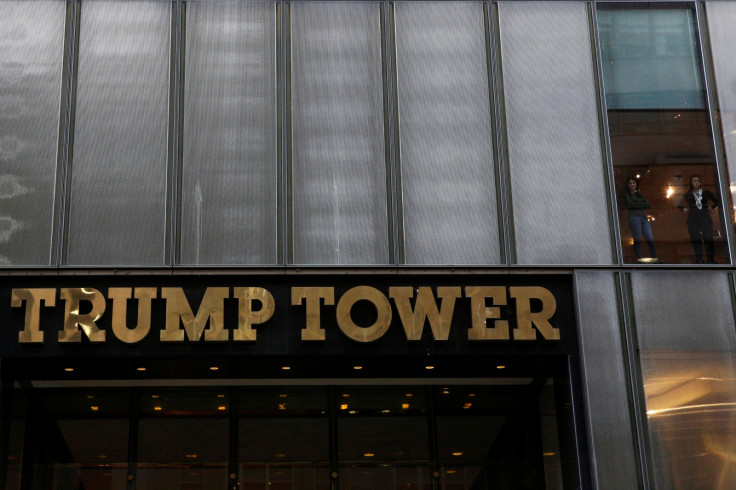Video: Trump tells ritzy 21 Club restaurant-goers he'll lower their taxes
Rich will become wealthier under Republican tax plan - 'don't worry about it', Trump says.

Video from inside the ritzy New York restaurant where president-elect Donald Trump ate after ditching a meeting with the press shows him telling patrons he will lower their taxes.
"We'll get your taxes down — don't worry about it," Trump is heard saying in the video as he shakes hands with people in the 21 Club restaurant on Tuesday night (15 November). Patrons are heard shouting "thank you" and Trump received a standing ovation when he arrived.
The restaurant is just around the corner from Trump Tower near Central Park in New York City, and Trump ate there with his family after abandoning a planned meeting with the press. A Tuesday special herb-crusted rack of lamb for two at the restaurant steakhouse goes for $125. Burgers go for $36.
A review of the restaurant on Trip Advisor makes clear that the venue doesn't appreciated under-dressed visitors. Billionaires are regular patrons and the restaurant has a $480-a-head dining area and a vault of booze worth $1.5 million.
Trump has promised that the rich will pay their fair share of tax under his administration, but the numbers behind his tax plan show they will actually become much wealthier.
"We'll get your taxes down—don't worry about it" POTUS-elect Trump tells diners at NYC's 21 Club—via @HallieJackson who made a rez to get in pic.twitter.com/0IcEYXq7SW
— Bradd Jaffy (@BraddJaffy) November 16, 2016
"His proposal would cut taxes at all income levels, although the largest benefits, in dollar and percentage terms, would go to the highest-income households," according to a thorough analysis of Trump's tax plan by the Tax Policy Center, a think tank affiliated with the Brookings Institution.
The group's analysis shows that if the plan goes ahead the average American's taxes will be cut by $2,940 in 2017, increasing after-tax income by 4.1%. The highest net worth individuals who earn more than $3.7m a year, however, will get an average tax cut of about $1.1m, equivalent to 14.2% of their after-tax income.
This will leave a hole in federal tax revenues the analysis found, predicting a shortfall of $6.2tn over the first decade after the cuts. That would mean less money for government programs. In 2015, the US budget was $3.8 trillion.
© Copyright IBTimes 2024. All rights reserved.






